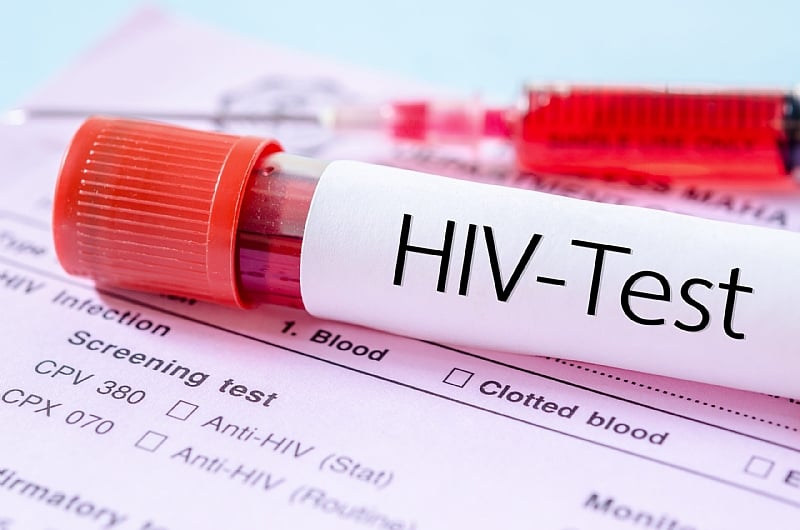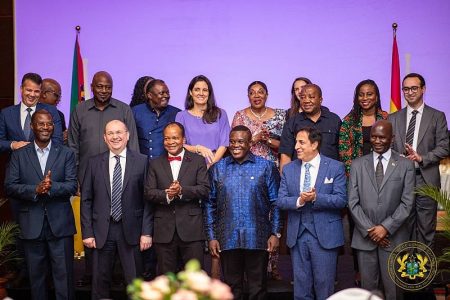The Ghana HIV and AIDS Network (GHANET) has released a report highlighting the vulnerability of specific populations to HIV infection within Ghana. The report, generated from data collected during a community HIV self-testing project, reveals that petty traders face the highest risk, followed by students, farmers, and unemployed youth. This information reinforces the critical need for targeted interventions aimed at these groups, addressing the specific factors that contribute to their increased vulnerability. The report serves as a valuable tool for shaping public health strategies and resource allocation, ensuring that those most at risk have access to the necessary information, preventative measures, and treatment options.
The project, a significant component of GHANET’s ongoing efforts, distributed a substantial 82,317 HIV self-testing kits in 2024. The vast majority, 77,665 kits, were disseminated through the dedicated work of volunteers from community-based organizations (CBOs) affiliated with GHANET. The remaining 4,652 kits were distributed at various public gatherings, including festivals, parades, and health walks, maximizing outreach and accessibility within the wider community. This multifaceted approach to distribution underscores GHANET’s commitment to reaching diverse populations and promoting widespread HIV testing.
Analysis of the self-reported results from the distributed kits revealed a concerning trend. Among the 324 individuals who reported reactive results, indicating a potential HIV infection, a disproportionate number were petty traders, totaling 85 individuals. Students constituted the second largest group with 29 reactive reports, followed by farmers with 21 reports. This data further emphasizes the elevated risk faced by these occupational groups and highlights the need for specialized prevention programs tailored to their specific circumstances. The high number of reactive results also suggests that self-testing, coupled with community-based distribution, can be an effective method for identifying previously undiagnosed cases of HIV.
Confirmation through confirmatory testing at healthcare facilities painted a clearer picture of the confirmed positive cases. Among those who underwent the confirmatory tests, 39 petty traders, nine students, eight farmers, and eight unemployed individuals were diagnosed with HIV and subsequently linked to treatment. This underscores the crucial role of follow-up confirmatory testing and the importance of facilitating access to treatment and care for newly diagnosed individuals. The successful linkage to treatment is a testament to the effectiveness of the program in not only testing but also ensuring access to essential medical services.
Beyond self-testing, GHANET’s project also prioritized human rights education related to HIV. The report highlights the reach of these educational efforts, with 13,193 individuals from other vulnerable populations (OVP), including kayayei (female head porters), fisherfolks, and miners, receiving vital education on HIV-related human rights. This education focused on critical areas such as reducing stigma and discrimination, promoting protection from sexual exploitation, and addressing gender-based violence. This comprehensive approach acknowledges the complex interplay between social vulnerabilities, human rights, and HIV risk, demonstrating a commitment to addressing not just the medical aspects of the virus but also the societal factors that contribute to its spread and impact.
GHANET’s work within the community demonstrates its long-standing commitment to combatting HIV and AIDS in Ghana. As a leading civil society organization in this field, GHANET has been actively supporting the national response since 1996, with a network of members spanning all 16 regions of the country. In its role as an Implementing Partner of the Ghana Health Service (GHS) and the National AIDS/STI Control Programme (NACP) under the Global Fund Grant Cycle 7 (GC7), GHANET coordinated the crucial work of CBOs engaged in the community rollout of HIV self-testing and human rights interventions. The success of the project, particularly the high number of tests distributed and individuals linked to treatment, showcases the efficacy of community-based approaches and the vital role of partnerships between national programs and civil society organizations in the fight against HIV/AIDS. The recognition and appreciation of the volunteers’ substantial contribution highlight their integral role in the project’s success and the importance of community engagement in public health initiatives.














